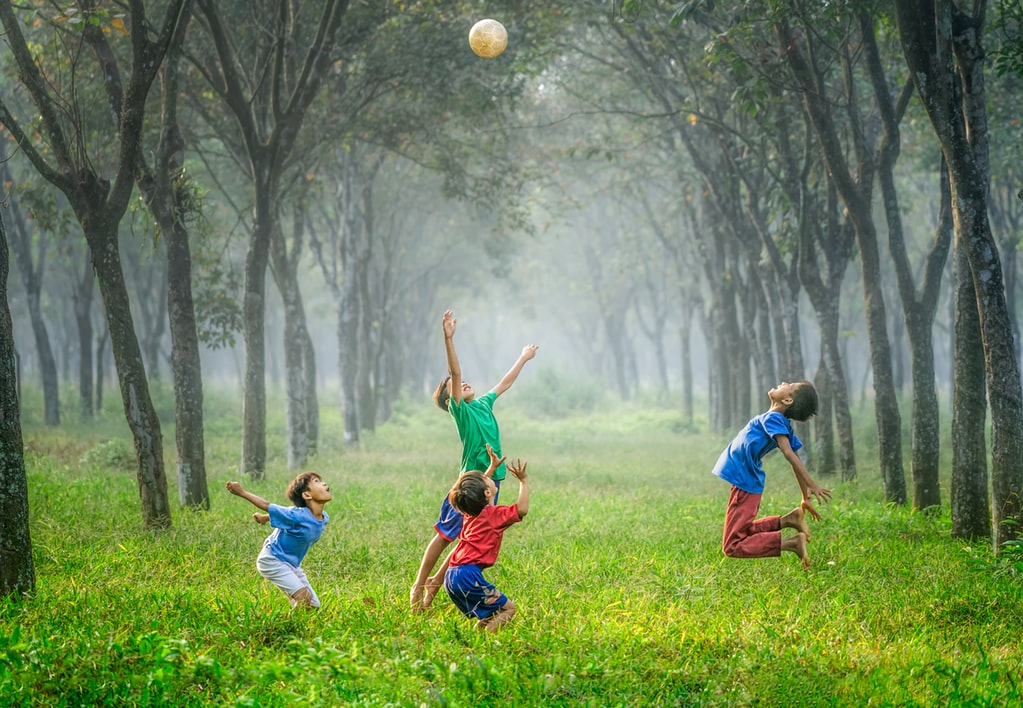
Play is critical to a well-balanced childhood, and in our technological age, when the time and space to play are shrinking dramatically both at school and at home, there is, thankfully, a growing awareness of its role in a child’s development. More and more articles and academic papers touting the value of play are being published. “is suggests that, on some level, we are becoming more aware that something absolutely essential to humanity is being threatened by our frenetic lifestyles. Perhaps our gut instinct is saying, “No. Free play is a right of childhood.” Austrian philosopher Rudolf Steiner understood the pivotal role play has in human development: “If a child has been able in his play to give up his whole living being to the world around him, he will be able, in the serious tasks of later life, to devote himself with confidence and purpose to the service of the world.”
To bring this issue into sharper focus, we’ve included a table that lists the essential benefits of play compared with the stark developmental costs to kids who are denied the time and space to experience free play. As renowned educator Friedrich Frobel so aptly expressed it, “Play is the highest phase of child development—of human development at this state. It gives therefore joy, freedom, contentment, inner and outer rest, peace with the world. It holds the sources of all that is good.” Perhaps a five-year-old boy named David put it best: “Play is when we don’t know we are different from each other.”
BENEFITS OF PLAY
- Motor skills are developed
- Senses are sharpened
- Have appropriate expressions of emotions (empathy)
- Foster sharing, turn-taking, cooperation, feeling of well being
- Master sequencing. Learn to put things in order, large to small.
- Build perspective taking skills
- Delay gratification and impulse control
- Grow vocabulary
- Develop flexibility
- Practice role-taking, working through fears via assuming archetypal roles
- Learn to move between stimulation-activity and calm-relaxation
- Expand imagination and creativity
- Learn to tell a logical story—script producing
- Express active empathy, seeking ways to help others who are struggling
- Develop humor; be able to laugh at self as well as with others
- Build a sense of mastery and competence
- Reduce aggressive behavior
- Grow a sense of timelessness, expansion
- Adapt to unexpected outcomes; able to accept winning or losing
- Accept challenges that require a “stretch” of learning and capacity
COST OF PLAYLESSNESS
Impairment, speech issues
Sensory overwhelm issues, mistrust of bodily sensation
Disassociation from actions
Self centeredness, poor impulse control, feeling uncentered
Disorganized thinking, feelings, and actions
“If you don’t agree with me, you’re lying”
“I want it all now!”
Attention priority issues
Frustration at not being able to express one’s self
Fear of change and problems with transitions
A generalized anxiety that builds over time
Stuck in low to moderate vigilance; jumpy, nervous; sleeping and eating problems
Rigid, narrow experience of the world
Feeling adrift, fear of the future
Schadenfreude (delighting in others’ pain and misfortune)
Defensive, come-back oriented, sarcastic
Inferiority, feeling victimized
Emotional brittleness, imploding-exploding
Overly self-aware
Victor or victim; driven to win at all costs through fear of losing status
Over-developed one-sided skills and mistrust of new learning
From Kim John Payne, Luis Fernando Llosa, & Scott Lancaster. Beyond Winnning: Smart Parenting in a Toxic Sports Environment(Lyons Press, Connecticut, 2013)
